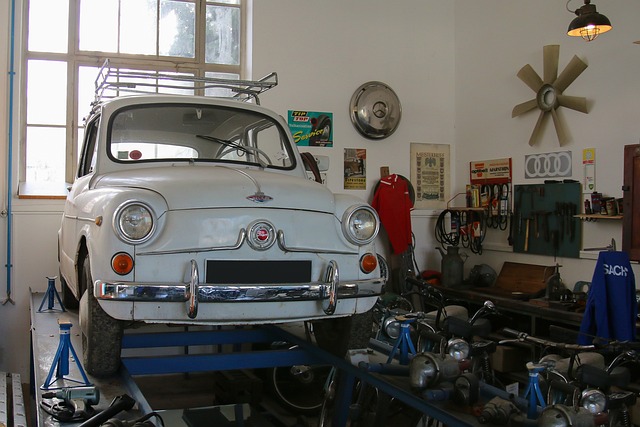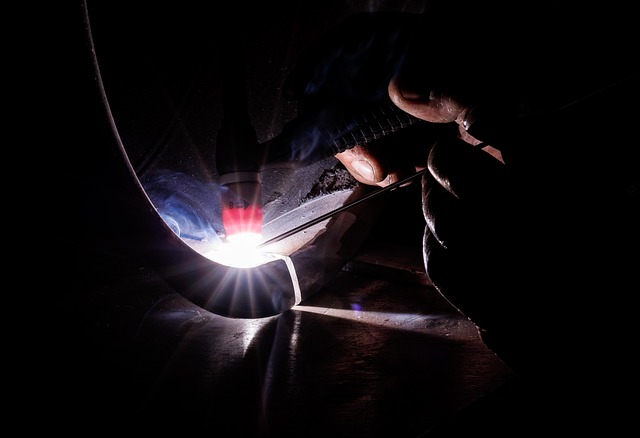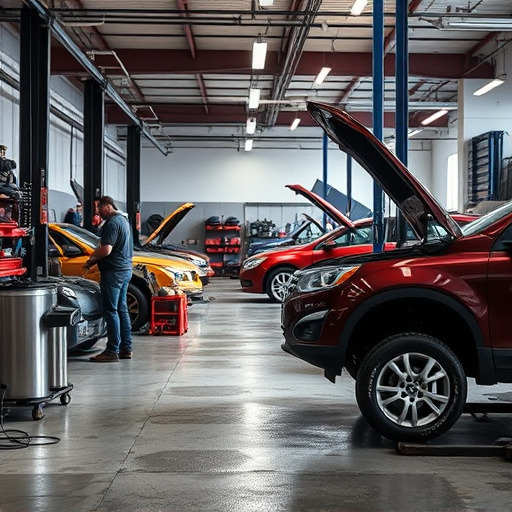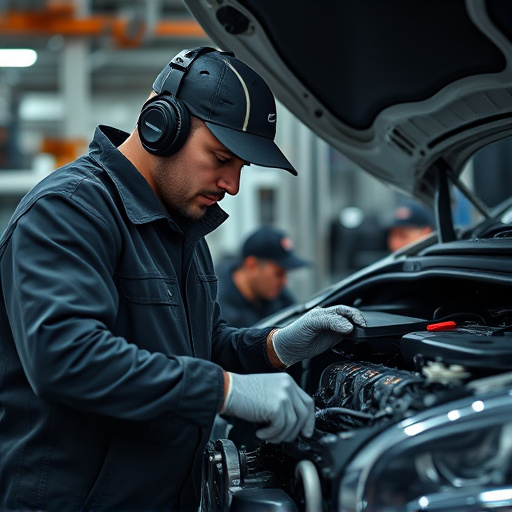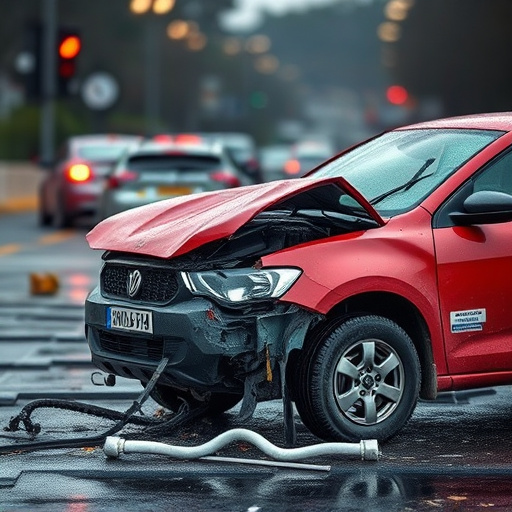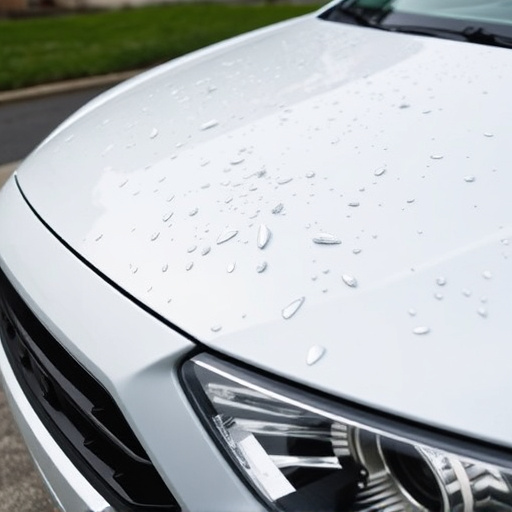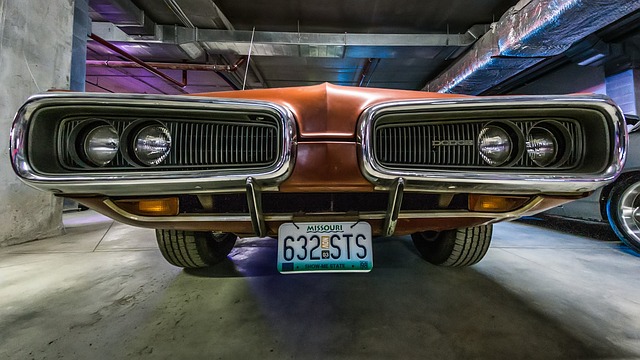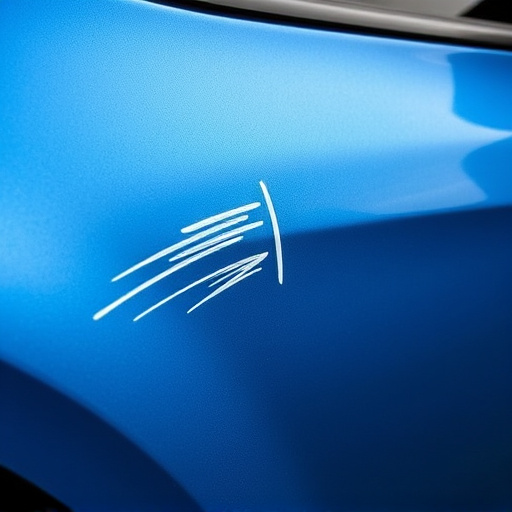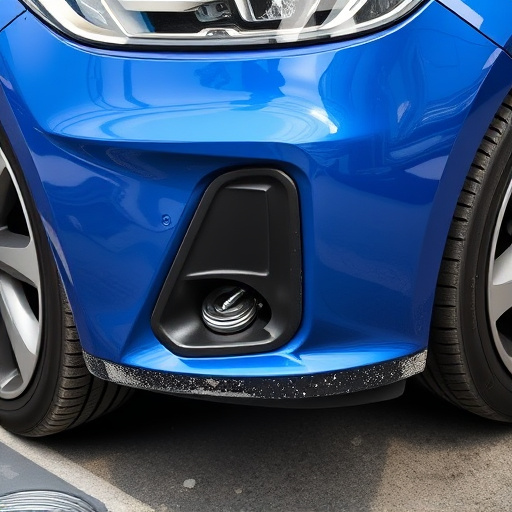In expert auto body repair, adhering to strict environmental regulations is vital for minimizing ecological impact. This involves eco-friendly practices like using green painting materials and recycling scrap metal. Mechanics prioritize sustainability through material management with recycled, non-toxic substances, water conservation techniques, efficient waste management, and proper disposal of hazardous materials. Strict compliance with local, state, and federal standards ensures a safe workspace and promotes the longevity of repaired vehicles in an environmentally conscious world.
In the realm of expert auto body repair, adhering to stringent environmental standards is not just a legal requirement but also a testament to sustainable practices. With the ever-evolving regulatory landscape, understanding and implementing eco-friendly methods have become paramount for technicians. This article delves into the crucial aspects of environmental regulations in auto body repair, highlighting sustainable practices, safety protocols, and compliance measures that define expert restoration processes.
- Understanding Environmental Regulations in Auto Body Repair
- Sustainable Practices for Expert Technicians
- Ensuring Safety and Compliance During Restoration Processes
Understanding Environmental Regulations in Auto Body Repair

In the realm of expert auto body repair, understanding and adhering to environmental regulations is paramount. These guidelines are designed to mitigate the ecological impact of automotive restoration processes, ensuring that every step taken in a Mercedes Benz collision repair or any other fender repair service aligns with sustainability standards. The industry must manage hazardous materials responsibly, reduce waste generation, and minimize energy consumption during repairs.
By embracing eco-friendly practices, expert auto body repair professionals not only contribute to the preservation of our planet but also enhance their reputation in a competitive market. From using environmentally friendly materials in painting processes to implementing efficient recycling programs for scrap metal and other byproducts, these measures reflect a commitment to excellence in both auto repair services and environmental stewardship.
Sustainable Practices for Expert Technicians

In the realm of expert auto body repair, sustainable practices are not just an admirable goal but a necessity. Technicians in this field play a pivotal role in minimizing environmental impact by adopting eco-friendly methods. One key area is material management; using recycled and non-toxic substances for repairs and prioritizing local suppliers to reduce carbon footprints associated with transportation. Additionally, these experts employ water conservation techniques, such as implementing closed-loop systems for painting and utilizing low-VOC (Volatile Organic Compound) paints, which not only enhances air quality but also reduces the environmental burden of volatile emissions.
Beyond material choices, efficient waste management is integral to sustainable car repair shop operations. Collision repair shops can significantly reduce their ecological footprint by recycling metal, plastic, and glass from damaged vehicles, as well as proper disposal of hazardous substances like old fluids and batteries. By integrating these eco-conscious strategies, expert auto body repair technicians not only contribute to a greener planet but also ensure the longevity and safety of restored vehicles in an increasingly environmentally aware society.
Ensuring Safety and Compliance During Restoration Processes

In the realm of expert auto body repair, ensuring safety and compliance during restoration processes is paramount. Professional mechanics adhere to stringent environmental standards to safeguard both workers and the surrounding community. This involves the proper handling and disposal of hazardous materials commonly used in automotive body work, such as solvents and paint fumes. By implementing strict protocols, these experts create a safe workspace that minimizes exposure risks for everyone involved.
Compliance with local, state, and federal regulations is non-negotiable in expert auto body repair. This includes adherence to guidelines related to air quality, waste management, and emissions control. Advanced ventilation systems, for instance, are often employed to capture and filter harmful fumes from car paint repair processes. Such measures not only meet regulatory requirements but also contribute to a healthier environment, making auto repair near me a more sustainable and responsible service.
In conclusion, expert auto body repair facilities prioritize environmental sustainability by adhering to stringent regulations and implementing eco-friendly practices. Through understanding and complying with environmental standards, these technicians not only ensure the safety of restored vehicles but also contribute to a greener future. By focusing on sustainable methods, they demonstrate their commitment to both quality craftsmanship and ecological preservation in the automotive industry.
